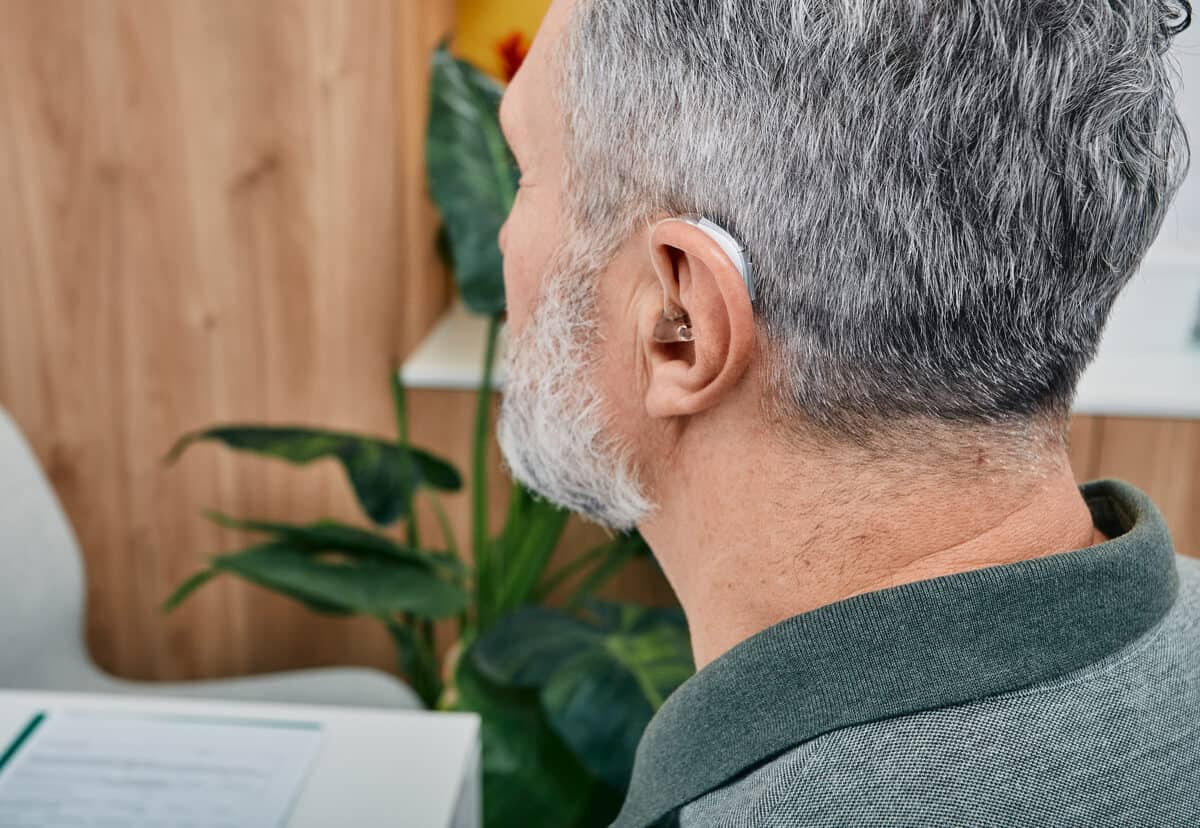Aging is a common cause of hearing loss. In fact, half of all adults who are 75 and older have disabling hearing loss. Age related hearing loss, also known as presbycusis, is the third most common health issue that older adults experience. Though it is pervasive, hearing loss among older adults remains undertreated. It is estimated that only one third of people who could benefit from treatment actually receive it. Treating hearing loss can transform hearing and overall health in significant ways that enhance quality of life.
Seniors & High Frequency Hearing Loss
Numerous studies show that older adults experience a higher risk of developing hearing loss. Research also highlights that the type of hearing loss commonly experienced is high-frequency hearing loss which is characterized by not being able to hear high-pitched sounds. A recent study that investigated the link between older adults and high frequency loss was published in 2020. Researchers pulled data from the Korea National Health and Nutrition Examination Survey (2009-2012). This included data that encompassed physical examinations, blood tests, otoscopic examinations, and hearing tests for 16,799 adults.
After assessing this data, researchers identified the following key findings:
- Ages 60-69:
-
-
- 42.7% had hearing loss at 3000 Hz
- 54.3% had hearing loss at 4000 Hz
- 79.5% had hearing loss at 6000 Hz
-
- Ages 70+:
-
- 70.7% had hearing loss at 3000 Hz
- 78.4% had hearing loss at 4000 Hz
- 93.2% had hearing loss at 6000 Hz
Researchers also found that for participants 39 and younger, rates of high frequency loss were low. These findings highlight that older adults disproportionately experience high frequency loss and that the risk of hearing loss becomes higher with age.
Recognizing Hearing Loss Symptoms
Hearing loss is a condition that typically occurs gradually. This means that people may experience symptoms without necessarily knowing it. Being able to recognize symptoms is a helpful way to identify changes you may experience to hearing health. Common symptoms include the following:
- Tinnitus which is a ringing, buzzing, or clicking like noise in one or both ears.
- Sounds are slurred, muffled, or distorted.
- Struggling to hear in environments with background noise (restaurants, bars, parties etc.).
- Finding yourself saying “huh” or “what” in response to what others are saying.
- Frequently asking others to repeat themselves or speak louder.
- Lip reading to identify individual words.
- Needing to turn up the volume on the TV, phone, or other electronic devices.
- Missing parts of a conversation, experiencing miscommunication.
- Being able to hear more clearly out of one ear compared to the other.
- Feeling drained after conversations and social interactions.
These symptoms can be mild to severe, straining communication. Conversations become difficult to engage in so people often avoid them as much as possible. This leads to social withdrawal, another common symptom of untreated hearing loss. Hearing loss that remains untreated can also increase health risks including accidental injuries and cognitive decline. Recognizing symptoms and intervening as early as possible can help you change the trajectory of your health and wellness.
Treating Hearing Loss
There is a wide range of hearing healthcare services, resources, and treatment options that you can access. Treating Hearing loss not only transforms hearing but it also enhances quality of life. The first step is to have your hearing assessed by a hearing healthcare specialist. Hearing tests involve a painless and noninvasive process that measures hearing capacity in both ears. This identifies any hearing loss and the degree of impairment you could be experiencing.
The most common treatment for hearing loss is hearing aids. These are electronic devices that are equipped with innovative technology that absorbs and processes speech as well as sound. This provides the ears and brain with ample hearing support, alleviating symptoms and maximizing hearing capacity. Hearing aids enable people to navigate conversations, social interactions, and everyday life with much greater ease and comfort. This supports social engagement, improves relationships, and overall health. Hearing aids strengthen cognitive functions which boosts brain health. These benefits enhance quality of life, supporting people living more fully.
Contact us today to schedule an appointment for a hearing consultation. We look forward to helping you prioritize your hearing health!

